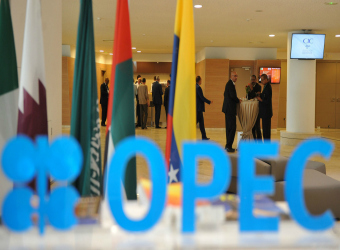UAE Minister for Energy Suhail al-Mazroui said on Tuesday there is “definitely” an appetite for non-OPEC members to join the 14-member cartel.
When asked whether the non-OPEC countries currently complying to the global supply cuts could eventually become official members of the cartel, al-Mazroui replied: “There is definitely a willingness and a wish to expand OPEC.”
“It would have been difficult to try to rebalance the market alone and so I think there is a rationale for this group to stay together… and maybe even expand,” he said at the Abu Dhabi International Petroleum Exhibition Conference (ADIPEC).
OPEC members are reportedly forming a consensus around extending by nine months their production cutting deal with other crude exporters. That would prolong the agreement among OPEC, Russia and nine other oil-producing nations to keep 1.8 million barrels a day off the market through the whole of next year.
The exporters reached the deal last December and have already extended the agreement once through March 2018.
At ADIPEC on Monday, OPEC Secretary General Mohammed Barkindo lauded the compliance of OPEC and non-OPEC nations to the global supply cut deal. He also said he expected all 24 OPEC and non-OPEC countries to participate in the cartel’s upcoming meeting.
OPEC and other non-OPEC producers are poised to meet on November 30 in Vienna, Austria, to decide on oil output policy.
The price of oil collapsed from near $120 a barrel in June 2014 due to weak demand, a strong dollar and booming U.S. shale production. OPEC’s reluctance to cut output was also seen as a key reason behind the fall. But, the oil cartel soon moved to curb production — along with other oil producing nations — in late 2016.
Brent crude traded at around $62.95 a barrel Tuesday morning, down 0.33 percent, while U.S. crude was around $56.58 a barrel, up 0.32 percent.
Source: CNBC
